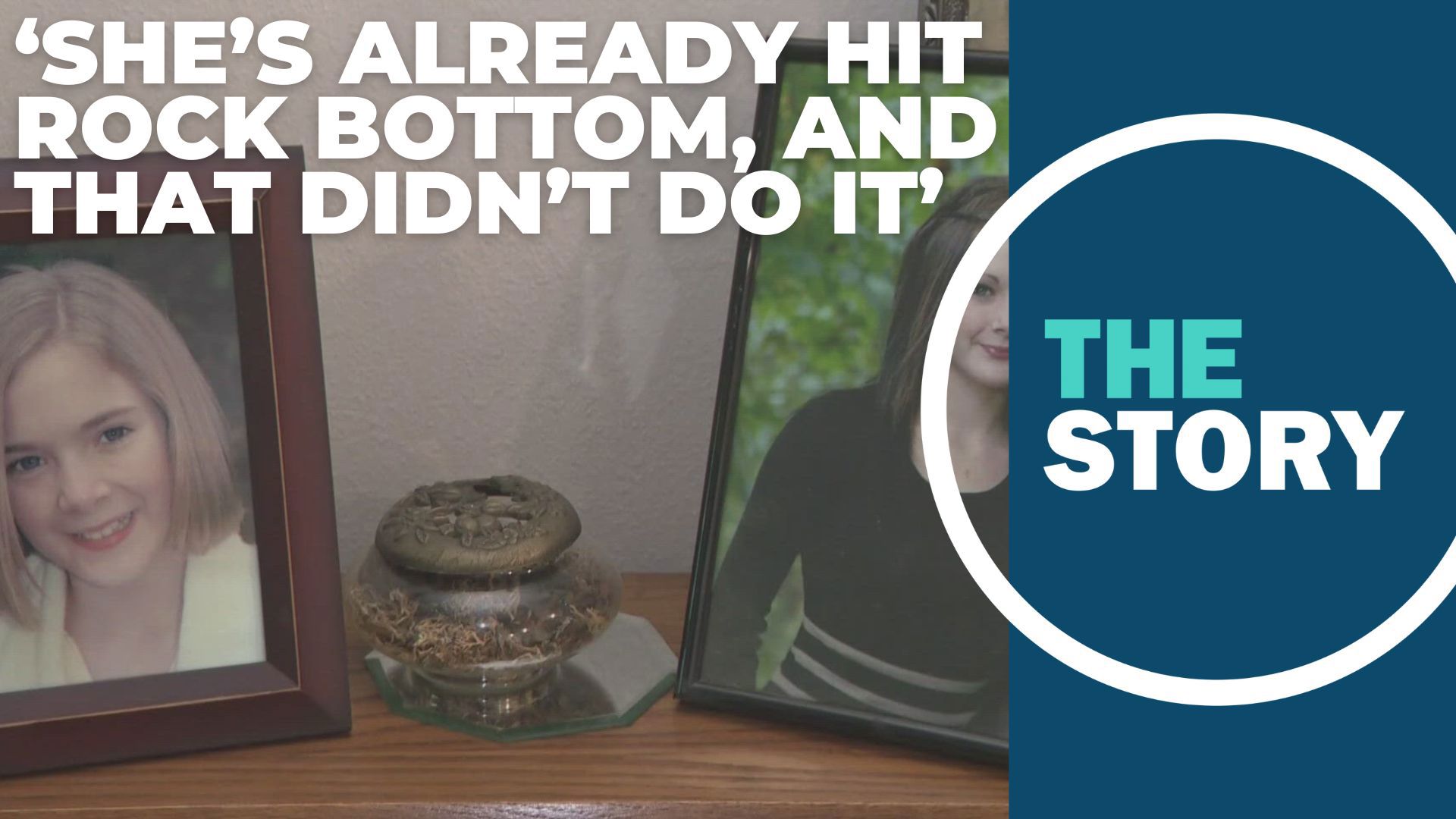PORTLAND, Ore. — As a father, Tim Hattan spent years piecing together his daughter’s life. As a young girl, Michaela — who is now 30 years old, addicted to fentanyl and living on the streets of Portland — found her stride in an Oregon City horse arena.
After high school, he said, everything changed.
"She basically ostracized herself from everybody in the family," Hattan said, recalling that he could rarely find her until he got a call that she was in the hospital. She had overdosed on fentanyl.
"You take this kid home when they're born, and you never expect anything like that," Hattan said.
Michaela survived the overdose, and Hattan started looking for residential treatment. However, no beds were immediately available.
"It was heart-wrenching to feel like you've been that close to something, and this may be my chance to help her," Hattan said.
His daughter ended up back on the streets. Hattan saw her again this past spring when she was in the hospital still addicted to fentanyl, but this time, she was there to give birth.
A few months later, she finally got into treatment. Hattan said she lasted three days until she went back to the streets.
Like Hattan, Shannon Starr's daughter also lives on the streets of Portland, addicted to fentanyl. She's 29-year-old Jade. KGW's Blair Best and Ken McCormick spent a day with her in her tent this past winter.
"For me, it's just like ... I’m just not ready to like, already sober up because I’ve already been there; I don't feel like this is the lowest point," Jade said several months ago.
"As a mother, I've known her her entire life; she needs help. I need to get her the help, and I don't have the resources, and if the city's not helping me with those resources, then I'm just allowing my daughter to die on the streets of Portland," Starr said.
As these parents fought the streets of Portland, in Salem, lawmakers were making changes to Oregon drug laws; possession of substances like fentanyl will soon be a crime again, come September.
If caught by police, people will have the option of treatment over jail time. However, they are not required to enroll in that treatment as it stands right now.
It's not the change these parents were hoping for.
"If they catch her, and they are not actually going to require her to get into diversion or deflection, she's not going to get clean," Hattan said.
"It's kind of like this hands-off approach, where it's like, 'OK, we will kind of give a solution, but we're not going to enforce it,'" Starr said.
"It's useless. It's nothing. It's a big zero. There's no help," added Hattan.
There's one thing these parents say would help: making drug treatment mandatory.
"The only way someone like my daughter is going to get better is to be forced to get better. … I mean, she's already hit rock bottom and that didn't do it. Until they actually really treat these people like my daughter, things are not going to get better," Hattan said.
"It's sad that I have no help to help my adult child. If she dies on the streets of Portland, I don't want to have anything to do with this city or state," Starr said.

